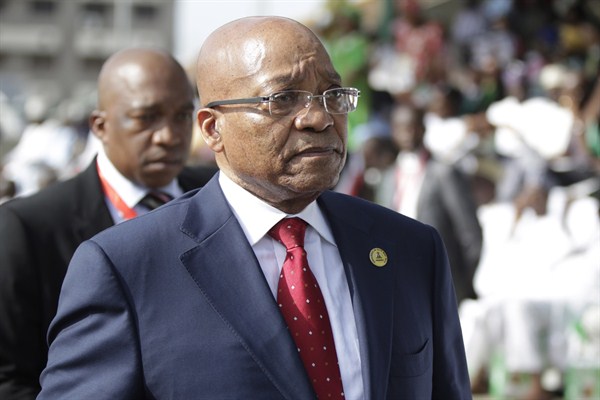The relationship between South Africa and Nigeria, generally troubled since the end of apartheid in 1994, deteriorated markedly in recent years during the respective presidencies of Jacob Zuma and Goodluck Jonathan. This crisis in relations is not in the interests of either country or the wider continent, which needs its two hegemons to work in collaboration to address Africa’s myriad problems. Both sides seem locked into antagonistic postures from which there appears to be no easy exit. But there is a way out.
Ties already in a freefall under Zuma and Jonathan reached their nadir in May, when Nigeria temporarily recalled its most senior diplomat from Pretoria in protest at the latest wave of xenophobic attacks on African nationals, including Nigerians, in South Africa. Though Abuja did not sever diplomatic relations, the move did send an unmistakable signal of disapproval, triggering an indignant South African response.
The incident only added to increasing tensions in recent years over a raft of other issues: the 2011 NATO intervention in Libya; differences over who should be the chairperson of the African Union in 2012; and continued maneuvering around the question of African membership of a reformed and expanded United Nations Security Council. Nigeria also objects to South Africa’s exclusive African membership in major international organizations like the G-20 and the BRICS, contesting Pretoria’s claim that it is equipped to speak for Africa within these forums. This resentment grew in 2014 when Nigeria supplanted South Africa as Africa’s largest economy.

